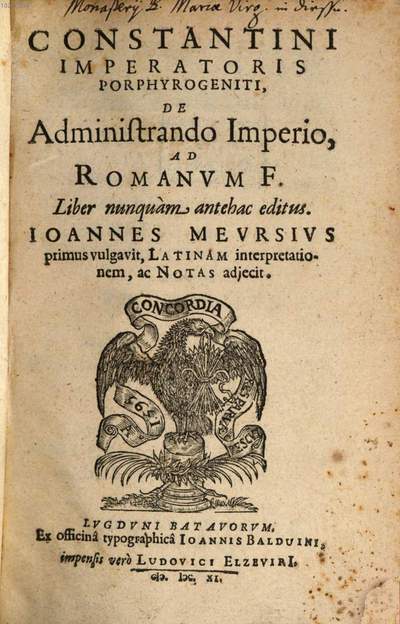

It contains little judgement of the outside cultures, seen in other accounts such as when Ibn Fadlan called the Rus’ “the filthiest of all Allah’s creatures” and noted their disgusting habits of washing their faces in dirty water, or having sex with their slave girls in public.
#DE ADMINISTRANDO IMPERIO MANUAL#
As a manual designed to help the ruler of the empire, the tone of the writing is straightforward. Or, as Treadgold points out, perhaps he was more concerned with preserving a jumble of what he hoped would be useful facts and was less concerned with comparing cultural merits. The author’s position as a king, writing about his empire and the surrounding cultures, seems to have imbued the narrative with a more factual overall view than some narratives by written by travelers to what they considered strange and unusual places. Other sources from which De Administrando Imperio is copied include Theophanes Continuatus, and the Life of Basil, both either written or commissioned by Constantine. His On Administering the Empire is a jumble of disjointed facts. He was far more a patron of writing than a writer, because most of the works attributed to him are virtually copied from earlier sources. was mainly interested in compiling reference works. Constantine VII was responsible for many written works during his lifetime Warren Treadgold notes that Chapter 9 discusses Russian (Rus’) traders who arrive by river each year to sell their boats. This work was created to aid Constantine’s son and heir in foreign diplomacy and domestic policy. It is one of the first Byzantine accounts of contact between their empire and the Scandinavian people. De Administrando Imperio is a handbook written in Greek by the Eastern Roman Emperor Constantine VII in the 10th century.


 0 kommentar(er)
0 kommentar(er)
